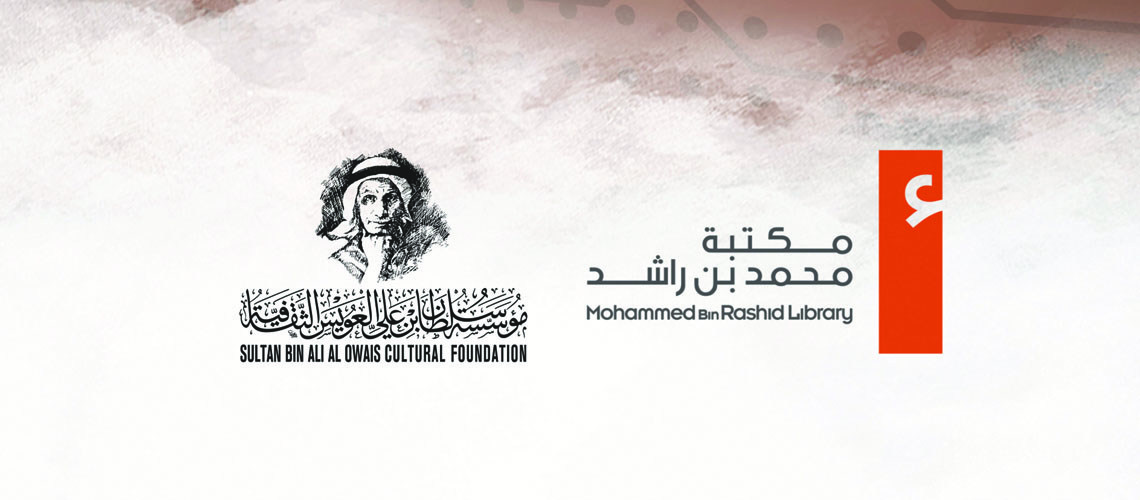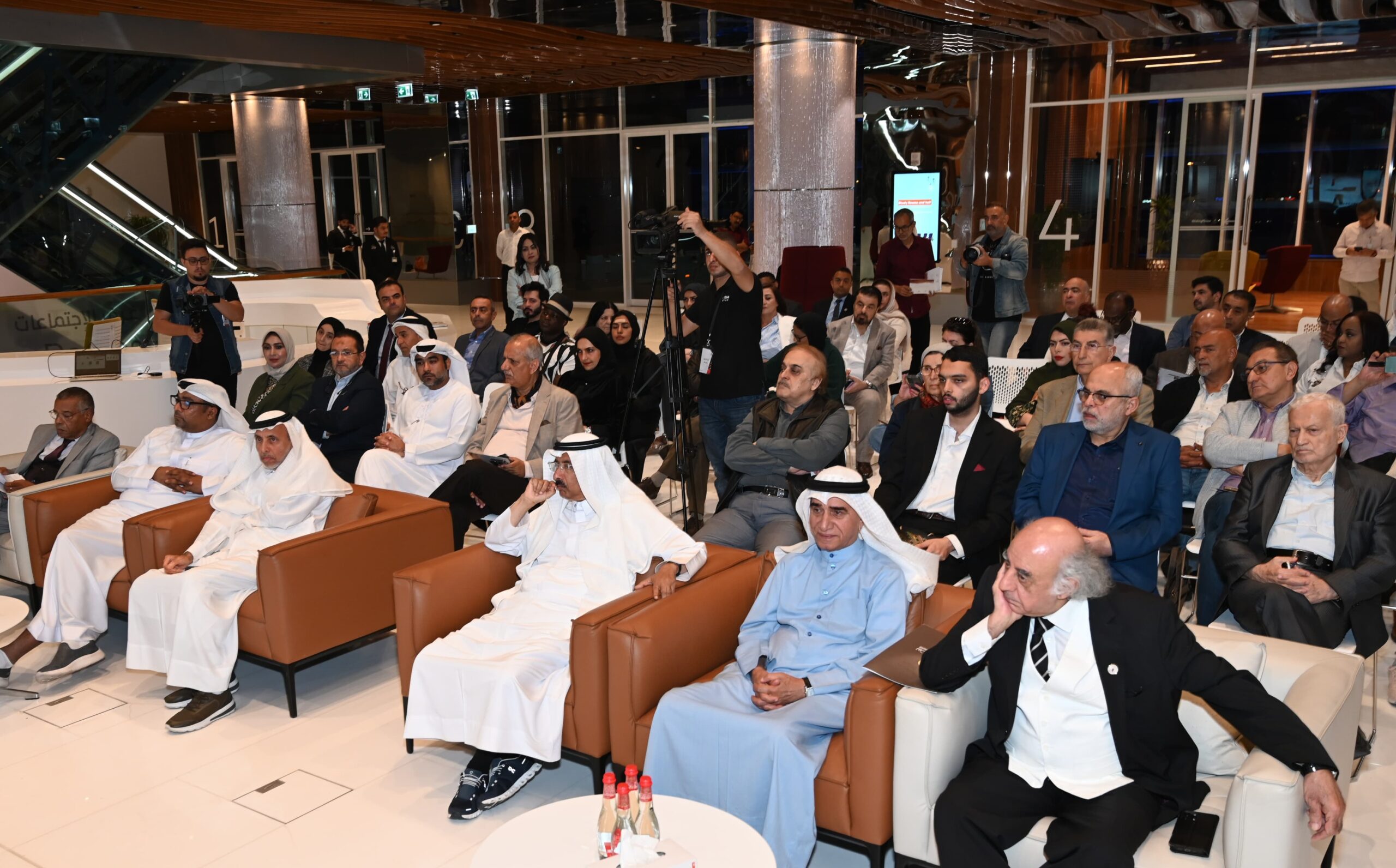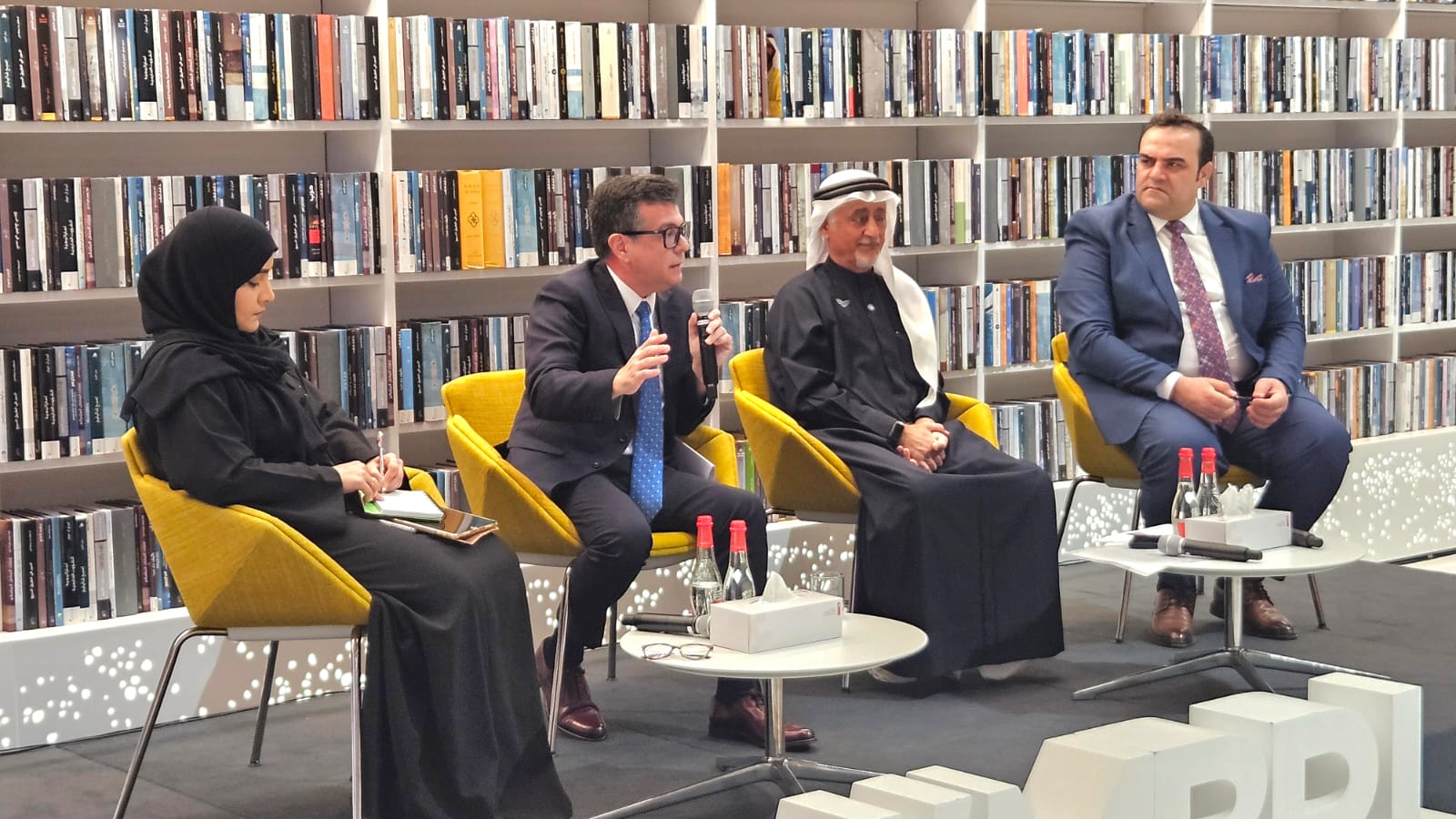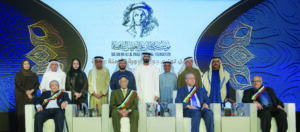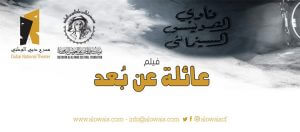The Mohammed Bin Rashid Library and the Sultan Bin Ali Al Owais Cultural Foundation have concluded the activities of the “Technology and Culture of Tomorrow Forum”, with resounding success. The forum highlighted the profound impact of culture and technology on contemporary society through a series of insightful scientific research presentations.
A group photo of participants at the “Technology and Culture of Tomorrow Forum”
The forum was attended by H.E. Mohammed Ahmed Al Murr, Chairman of the Mohammed Bin Rashid Library, H.E. Dr. Sulaiman Al Jassim, Vice- Chairman of the Board of Trustees of the Sultan Bin Ali Al Owais Cultural Foundation, Dr. Mohammed Salem Al Mazrouei, Member of the Board of Directors of the Library, along with a group of Emirati and Arab intellectuals, media professionals, researchers and interested parties.
Dr. Mohammed Salem Al Mazrouei expressed satisfaction with the forum’s remarkable success and extensive participation and highlighted the significance of its recommendations and outcomes that would contribute to fortifying the knowledge sector at the national level. Al Mazrouei underscored the importance of hosting such knowledge-rich events and forums that reflect the library’s steadfast commitment to integrating technology into its strategy and vision, thereby bolstering the nation’s comprehensive development renaissance, fostering innovation, creativity, and contributing to the development of new future initiatives and programs.
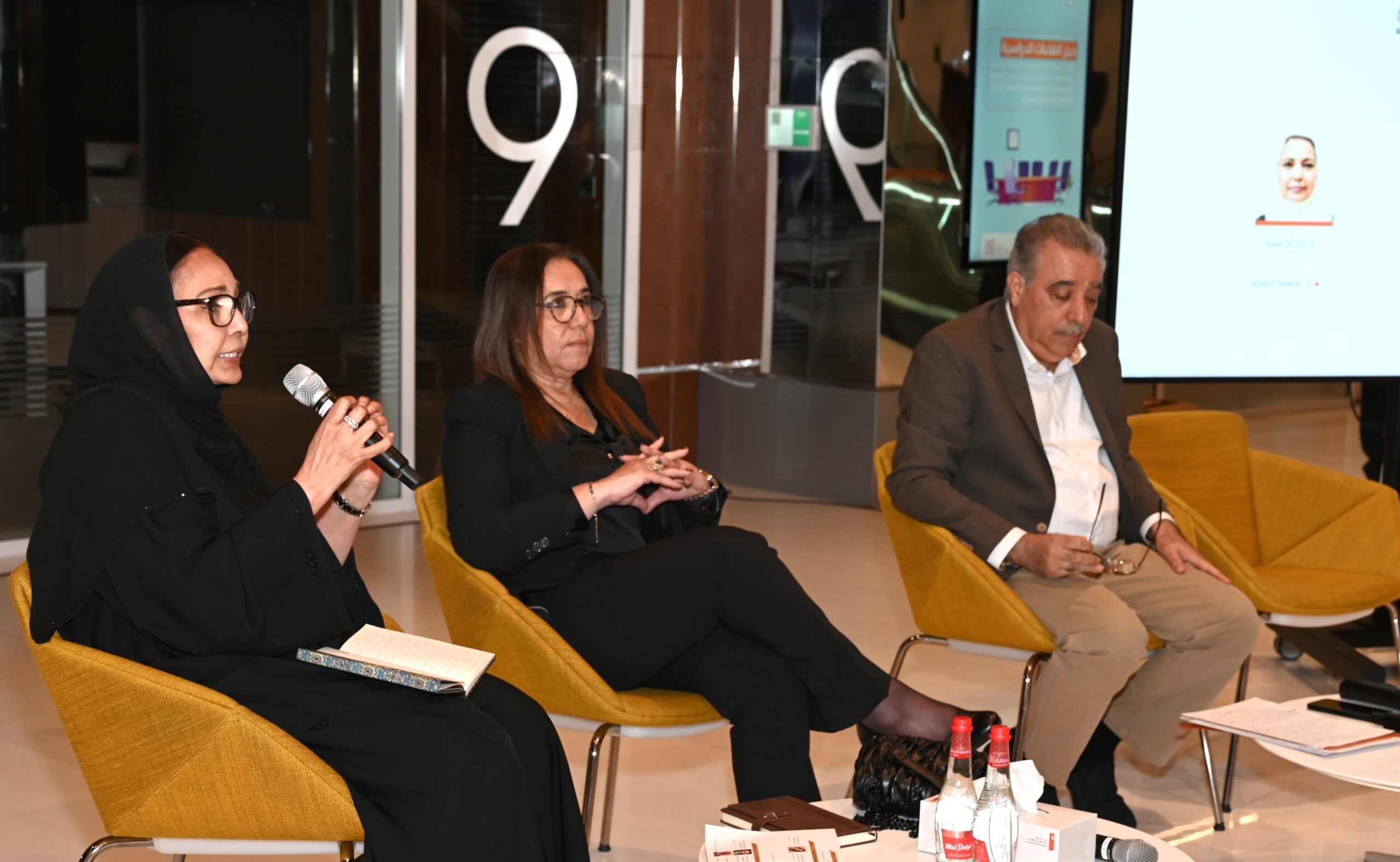 Fatima Al Sayegh, Zuhur Kiram and Abdullah Al Jasmi
Fatima Al Sayegh, Zuhur Kiram and Abdullah Al Jasmi
Al Mazrouei emphasized the Mohammed Bin Rashid Library’s keenness to expand its knowledge partnerships with both local and international institutions. He highlighted the library’s efforts to establish unique channels for knowledge exchange across various fields and disciplines. These endeavours align with the Library’s overarching vision to elevate the cultural and knowledge landscape, as well as to develop innovative solutions that enhance positive and constructive societal impacts over the next 50 years, in line with the vision and aspirations of the wise leadership.
H.E. Dr. Sulaiman Al Jassim, Vice-Chairman of the Board of Trustees of the Sultan bin Ali Al Owais Cultural Foundation, said: “This forum comes in implementation of the memorandum of understanding concluded between the Mohammed bin Rashid Library and the Sultan bin Ali Al Owais Cultural Foundation, to strengthen scientific and cultural cooperation, serving common cultural issues in society and fostering a positive impact on knowledge activities across various domains.”
He continued, “Technology is driving cultural transformations that are gradually permeating our lives, touching upon ethical and creative concepts, and subtly influencing shifts in moral values and associated behaviours, which will impact these changes have on our society? How should we address them in the future? Can we afford to ignore these changes while they are accessible to all, especially considering the close relationship between the younger generation and technology?”
Badiaa Al Hashemi, Nader El Bizri, Eesa Al Bastaki, and Osama Ibrahim
The forum presented numerous significant outputs and recommendations on its first day, featuring five valuable research presentations on “Artificial Intelligence and Cultural Simulation.” Additionally, several research papers were showcased, including those titled: “What Constitutes the Culture of Technology and Artificial Intelligence?” by Dr. Abdullah Al Jasmi, “Has Technology Become the Foundation of Cultural Constructs?” by Dr. Zuhur Kiram, “The Role of Philosophies in Addressing the Crisis of Modernity and Beyond in Technology” by Dr. Magdy Abdel Hafez, “The Influence of Technology on Ethical and Aesthetic Value Systems” by Dr. Ahmed Barqawi, and “Artificial Intelligence and its Impact on Employment” by Dr. Saeed Al Dhaheri.
Day 2 of the forum featured six distinguished research presentations, including: “The Influence of Technology on the Role of Intellectuals in Guiding Society” by Dr. Nader El Bizri, “Exploring How Our Contemporary World Embraces Technology Culture” by researcher Osama Ibrahim, “Harnessing Technology and Artificial Intelligence to Preserve Cultural Heritage” by Dr. Eesa Al Bastaki, “The Impact of Artificial Intelligence on Knowledge Representation and Accessibility in Libraries and Information Institutions” by Dr. Khaled Abdel Fattah, “Technical Challenges Confronting Modern Libraries” by researcher Mohammad Al Fraih, and “Cybersecurity and Enhancing Security Measures in Libraries” by Dr.
Mohammed Al Kuwaiti.
The closing discussion sessions enriched participants’ understanding and expanded horizons regarding the role of modern technologies and their multifaceted impact on society, health, economy, and social dynamics. Discussions delved into topics such as leveraging technology to enhance overall well-being, stimulate economic growth, elevate living standards, and the crucial significance of innovation and ongoing adaptation to technological advancements to address present and future challenges effectively.
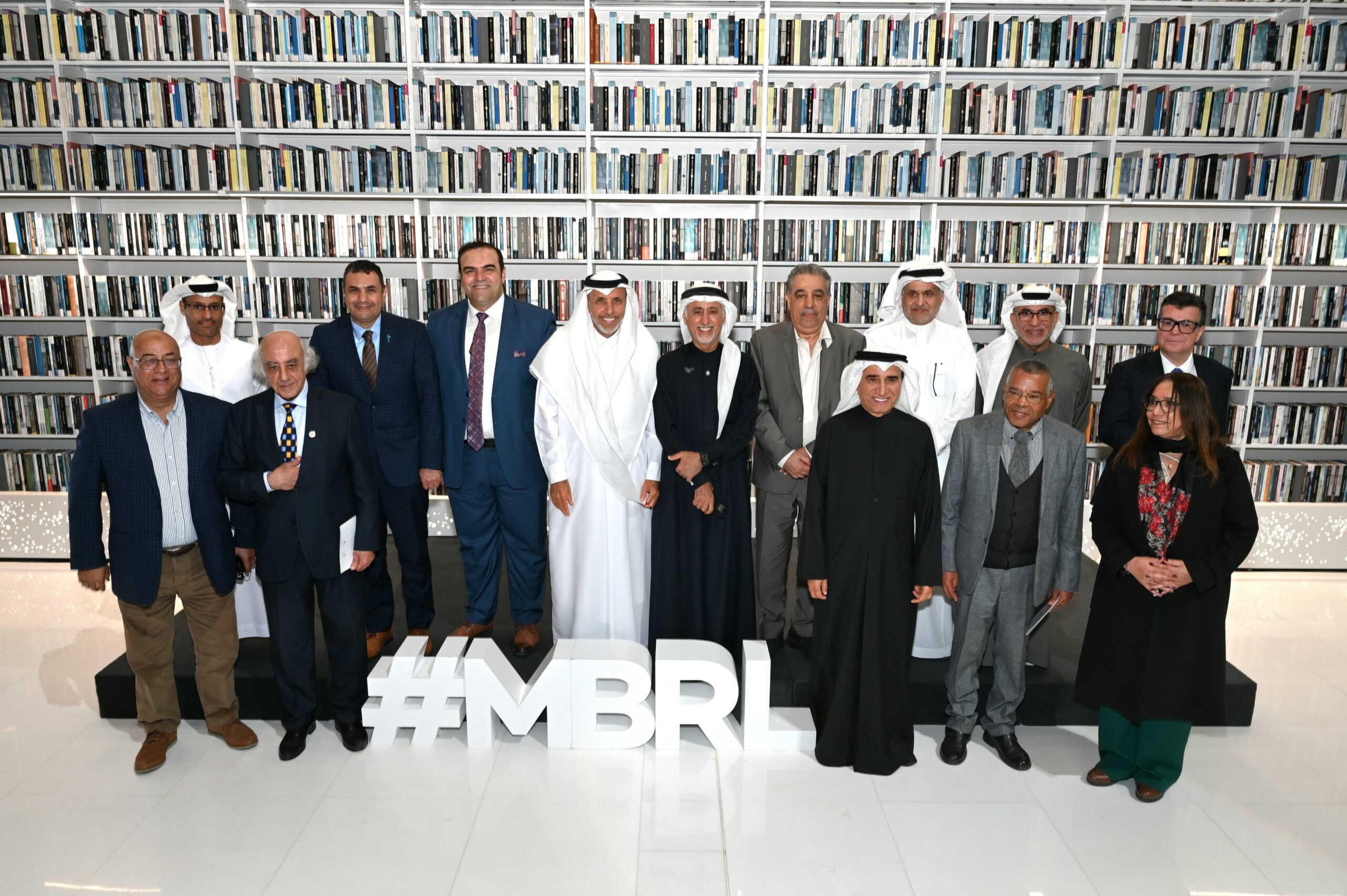
The “Technology and Culture of Tomorrow” forum concluded with a profound acknowledgment of the significance and influence of technology in shaping the future of societies. It emphasized the imperative of utilizing these tools judiciously and responsibly to maintain a harmonious equilibrium between technological advancement and cultural and social sustainability. The forum underscored the myriad new opportunities that innovative technologies present for societies, underlining the necessity of adopting an open-minded and multidisciplinary approach to future readiness. Such an approach fosters cooperation, mutual understanding, and collaborative efforts aimed at building a brighter and more sustainable future for all.

